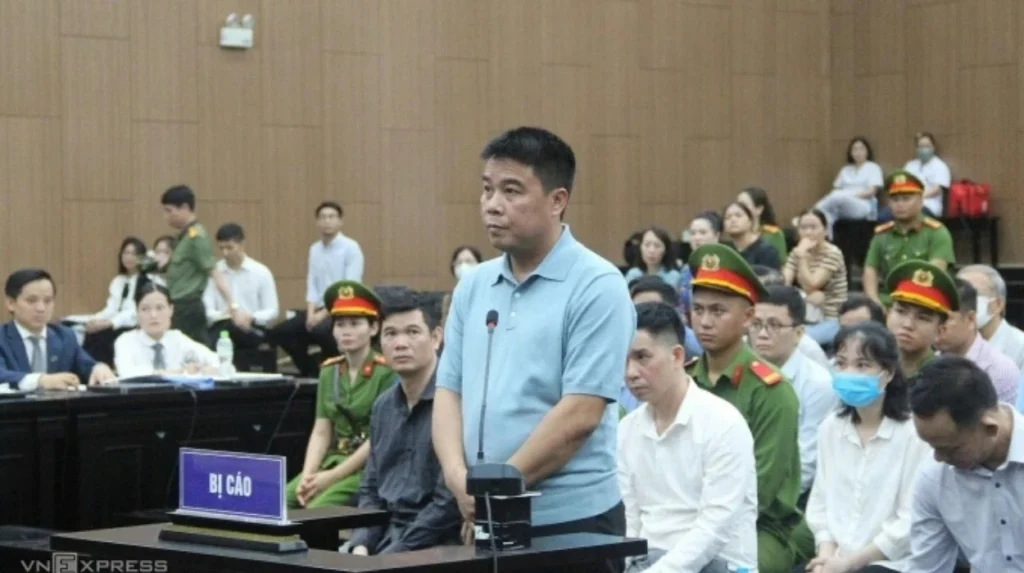Vietnam has handed down a prison sentence exceeding five years to a former senior parliamentary official in a prominent corruption case linked to bribery schemes involving property companies. This latest conviction reflects the Southeast Asian nation’s ongoing commitment to its aggressive anti-corruption campaign, which has seen numerous high-ranking officials and businesspeople tried and sentenced for bribery, abuse of power, and fraudulent practices undermining public trust and costing the state billions in damages.
Case Details: Former Parliamentary Official Pham Thai Ha Sentenced
Pham Thai Ha, who once served as the assistant to the chair of Vietnam’s National Assembly, was convicted on charges of abusing his power to influence local government officials in favor of a property firm, Thuan An Group. Prosecutors demonstrated that Ha leveraged his official status to help the company secure construction contracts illicitly, resulting in substantial financial losses to the state estimated at approximately 96.8 billion dong (about $3.67 million).
Court records and media reports state that Ha admitted to the charges during his trial. The judgments against him serve as an example of the judicial system’s willingness to target corruption even among high-ranking political aides.
Broader Anti-Corruption Efforts and Related Cases
Pham Thai Ha’s case is part of a larger landscape of legal action against corruption within Vietnam’s government and business sectors. Over recent years, Hanoi has pursued a wide-reaching campaign targeting systemic graft, which has implicated multiple former provincial party secretaries, senior officials, and influential business figures.
A notable illustration is the Phuc Son Group case, in which 41 defendants—including five former provincial party leaders—stood trial for a massive corruption scheme. The chairman of the Phuc Son Group, Nguyen Van Hau, nicknamed “Hau Pháo,” was found guilty of paying over 132 billion dong ($5 million) in bribes to officials in several provinces. These bribes were used to secure illegal approvals for at least 14 unauthorized real estate projects, causing state losses valued above 1.16 trillion dong ($44.48 million).
Former party chief of Vinh Phuc province Hoang Thi Thuy Lan received a 14-year jail sentence for taking the largest bribes, nearly $2 million delivered in suitcases sometimes weighing up to 60 kilograms. During her court appearance, Lan confessed,
“I recognise my mistakes and my crime and fully accept the indictment,”
while appealing for leniency on behalf of her comrades.
This case illustrates how corruption has permeated both government and business dealings, especially in the real estate sector, long a flashpoint for graft concerns.
Judicial Reforms and Public Perception
Vietnam’s judiciary is attempting to project a tougher stance on corruption, with high-profile trials and heavy sentences meant to deter future abuses of power. Alongside the Pham Thai Ha verdict and other cases, the court system has recently reduced sentences for certain offenders who show remorse or restitution efforts, as highlighted by Trịnh Văn Quyết, ex-chairman of the FLC Group, who saw his sentence reduced from 21 years to 7 years after repaying substantial funds.
Despite these efforts, the anti-corruption drive continues to face challenges related to the transparency and fairness of trials, judicial independence, and systemic reform. Critics argue that while high-profile trials raise hopes of accountability, deep-rooted corruption remains entrenched in many levels of governance.
Vietnam’s state media has emphasized the campaign’s successes, explaining that these actions help restore public faith in governance by punishing corruption without fear or favor.
Economic and Political Stakes
The corruption cases have significant economic repercussions as corruption distorts public procurement processes and undermines investor confidence. The illegal awarding of construction and infrastructure contracts through bribery, as exposed in these trials, results in financial damage to the state and may slow down infrastructure development crucial for Vietnam’s rapid economic growth.
Politically, the drive to root out corruption strengthens the Communist Party’s image as the protector of national integrity, but it also exposes vulnerabilities within the governing system. The prosecutions underscore the balancing act Vietnam’s leadership must maintain between enforcing discipline within its ranks and ensuring political stability.
A Firm Stance on Corruption
The sentencing of Pham Thai Ha and the ongoing trials of dozens of other officials and business figures signal a sustained Vietnamese commitment to a stringent anti-corruption posture. This judicial crackdown aims to curb the corrupt practices that have historically hindered the country’s development and tainted its public institutions.
“The fight against corruption is a long journey, but every step forward strengthens our country’s integrity and future,”
said an official from the Ministry of Justice, reflecting the government’s resolve to bring justice regardless of rank or affiliation.







